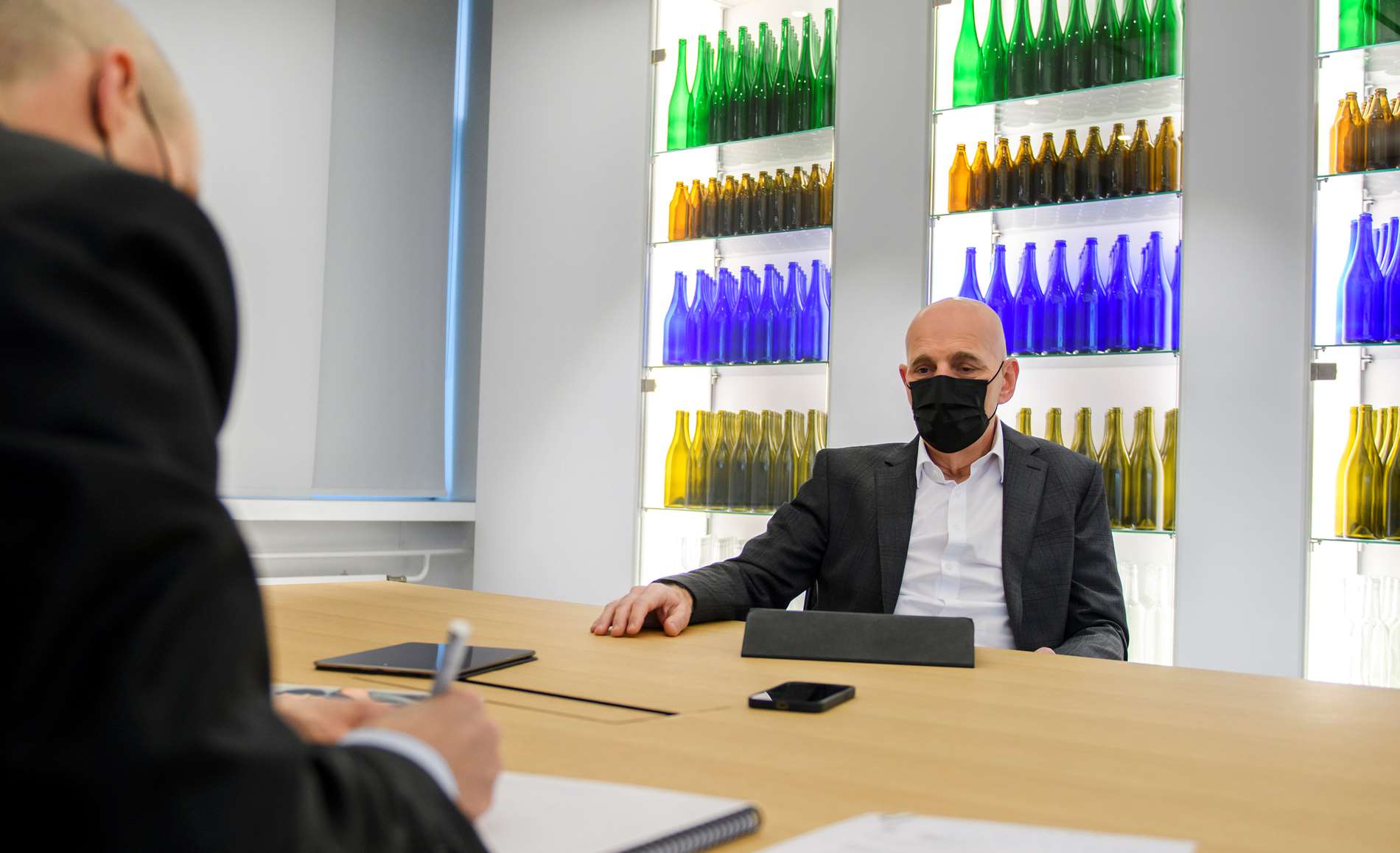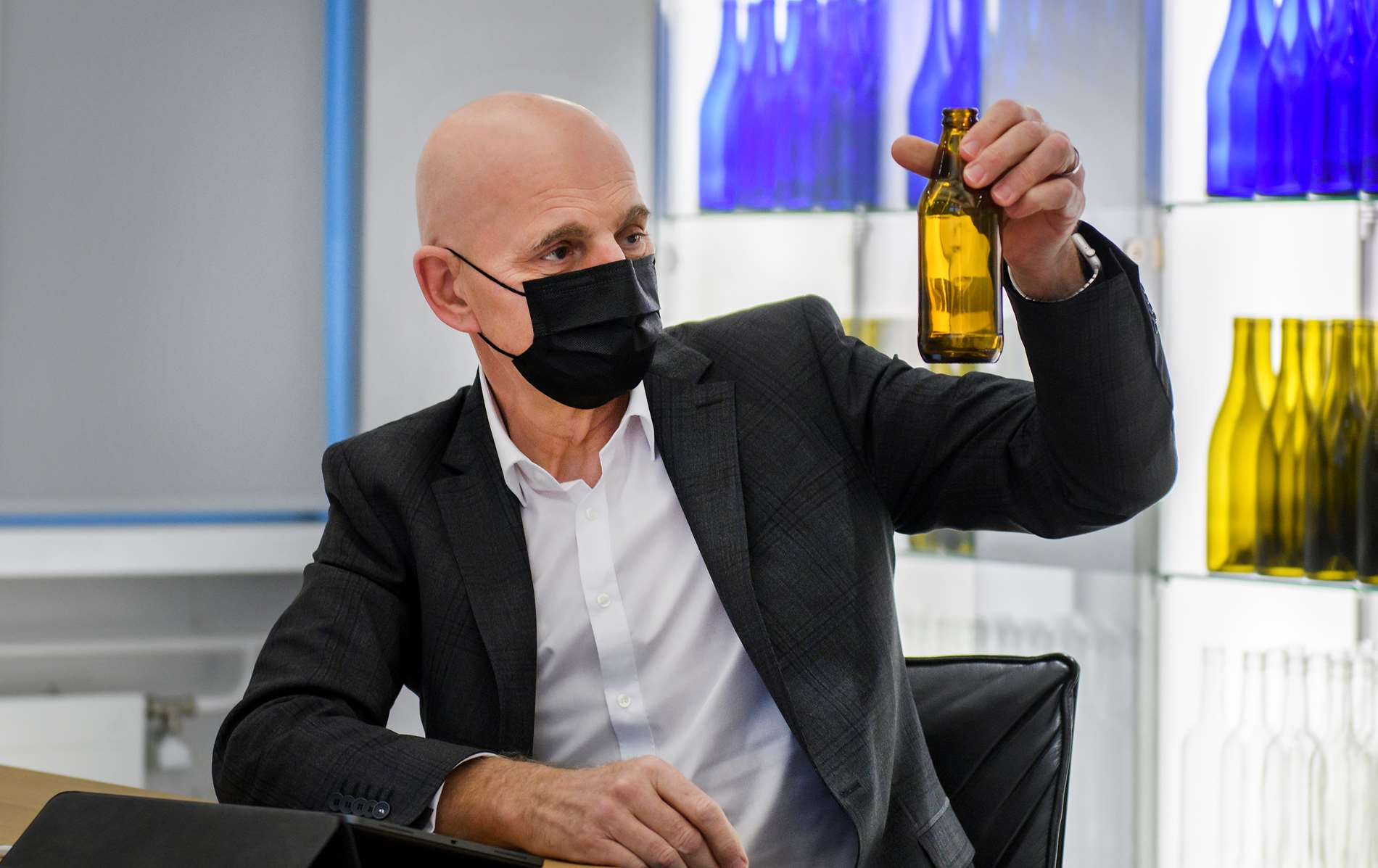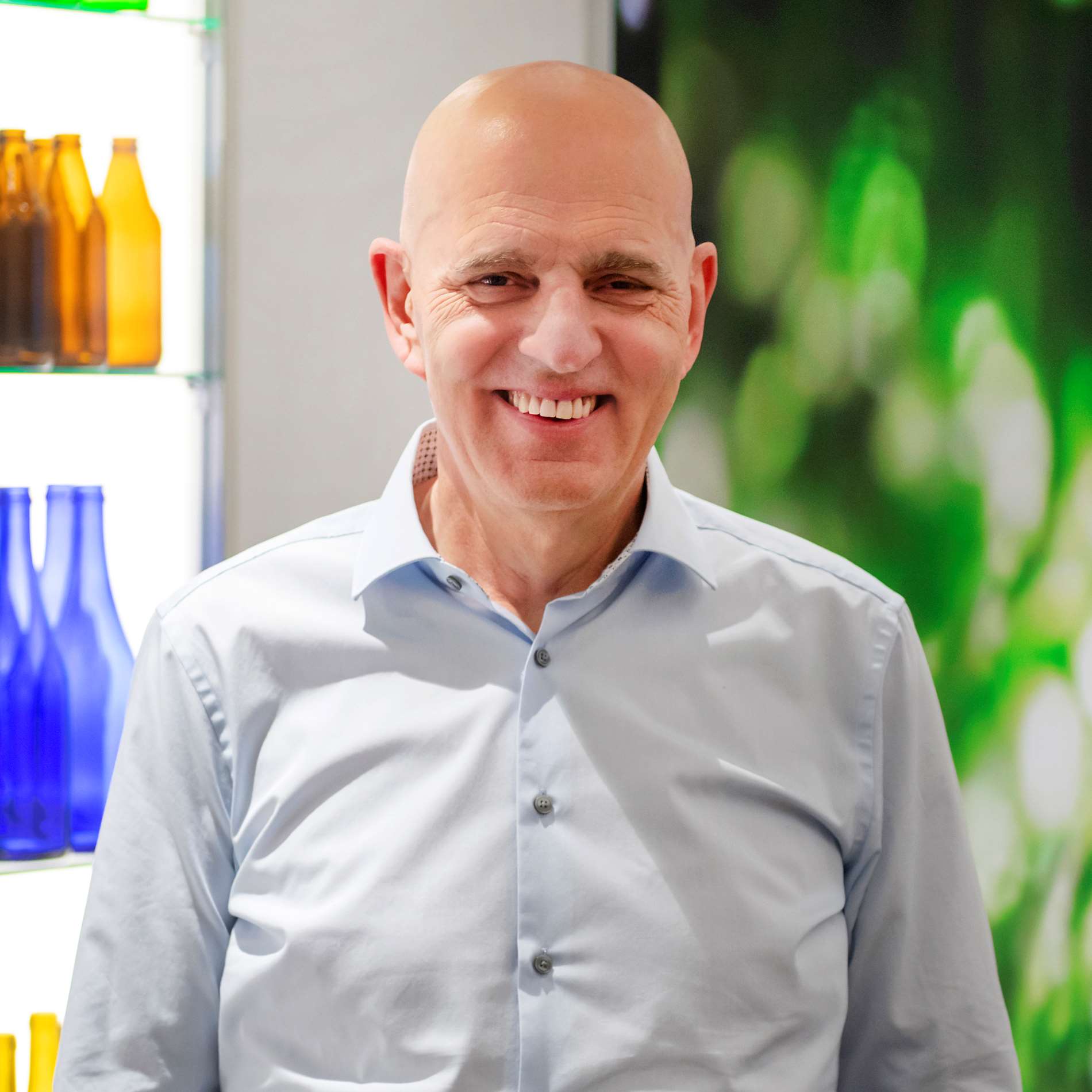- Interview CEO
- Vetropack Locations
- Market environment offering opportunities and challenges
- Business model
- Strategy 2030
- Management Structure
- Organisation
- Col2
- Material Topics and Performance Review
- Customers and suppliers
- Finances
- Innovation and intellectual property
- Production and products
- Employees
- Environment
- Col3
- New designs
- Financial Report
- Col1
- At a Glance
- Financial Report Vetropack Group
- Consolidated Balance Sheet
- Consolidated Income Statement
- Consolidated Cash Flow Statement
- Changes in Consolidated Shareholders’ Equity
- Consolidation Principles
- Valuation Principles
- Notes
- Ownership Structure
- Company Participations
- Report of the statutory auditor on the consolidated financial statements
- Five Year Overview
- Col2
- Financial Report Vetropack Holding Ltd
- Balance Sheet
- Income Statement
- Notes
- Board of Directors’ (BoD) Proposal for the Corporate Profit Appropriation
- Report of the statutory auditor on the financial statements
- Five Year Overview
- Corporate Governance
- Col1
- Introduction
- Board of Directors
- MB Members
- Remuneration and Additional Information
- Shareholders’ Participation Rights
- Auditors
- Information Policy
- Contact Address
- Remuneration Report
- Col1
- Introduction
- Principles of the Remuneration Scheme and its Components
- Organisation and Authorities for Determining Remuneration
- Description of the Remuneration Components
- Board of Director’s Remuneration
- Management Board’s Remuneration
- Comparison of Remuneration disbursed with the Remuneration approved by the 2020 and 2021 Annual General Assembly
- Shareholdings
- Report of the statutory auditor on the remuneration report
- Sustainability Report
- Col1
- Sustainability Report
- Customers and suppliers
- Finances
- Innovation and intellectual property
- Production and products
- Employees
- Environment
- Col2
Interview with
Johann Reiter,
CEO of Vetropack Group“We were absolutely capable of delivering at all times.”
The coronavirus pandemic turned the world upside down in 2020. In this interview, CEO Johann Reiter reports on how Vetropack has dealt with the crisis and talks about the strategic implications it has had. Overall, he concludes that the Group's long-term outlook is succeeding.
2020 will go down in history as the year of the coronavirus pandemic. Looking back today, when did you realise the full extent of the crisis?
It really hit home with me – as it probably did with many others – in March, when severe restrictions were introduced in various European countries. From then on, things moved incredibly quickly and to an extent that had been unthinkable before. At the beginning of March, I was still visiting customers in person in Austria and just a few days later we held our first Group-wide Covid crisis meeting.
Vetropack immediately put measures in place to keep the business up and running. What were the key factors involved in this?
We were able to quickly establish a common understanding across the whole Group about the gravity of the situation. This was the most important factor from my point of view. The reports from our colleagues in northern Italy – the first part of Europe to be badly affected by the virus – were helpful. Measures had to be implemented there before anywhere else. All the other countries were then able to benefit from the experience gained in Italy.

And what were the most important measures?
Comprehensive measures to protect our employees were implemented across all locations in line with the country-specific regulations. In order to coordinate all measures within the Group, we initiated a fortnightly Covid meeting, with cash management and warehouse developments permanent items on the agenda. We also quickly got in touch with our customers and suppliers as well as the respective authorities. We had to ensure that our supply chain could be kept up and running without any interruptions and that our factories could remain open. We succeeded on both fronts and we were absolutely capable of delivering at all times.
Vetropack came through the crisis relatively unscathed in 2020 with a 3.5% drop in sales in local currencies and only a slight decline in value added. What factors were instrumental in this comparative ability to withstand the crisis?
To a certain extent, our glass packaging for food and beverages means that we are an important cog in the system. Without packaging, products would not be delivered to the shops and would not reach consumers. This is what gives our business its basic stability. In glassmaking, it is also necessary to produce glass without interruption for 365 days a year. This requires not only a lot of flexibility but also the ability to react quickly and adapt. This helped us through the crisis. And last but not least, our entire management and all our staff deserve a huge amount of credit as they have done an outstanding job throughout.
What Vetropack departments were hit hardest by the pandemic?
From a business point of view, catering – i.e. where food and drink are consumed directly on site – was undoubtedly most affected. At times, sales in this area dropped to around zero. We were able to make up part of this through additional efforts in the area of private consumption.
... and from a human point of view?
The official restrictions and requirements have completely changed our social interactions. The situation is very tough and stressful on employees, especially in production, where hard physical work is done and staff can only do their work under strict safety measures.

Did the protective measures work?
Yes – right from the start. We implemented our protective measures consistently and have not had a single infection. We are proud of this.
In 2019, Vetropack developed a new strategy to last until 2030. Due to Covid, the world now looks very different. Does the strategy need to be adjusted?
We think and act with the long term in mind. This is reflected in our strategy, which is deliberately designed to cover ten years – roughly the service life of a furnace. Regardless of Covid, we review the strategy annually to ensure that it is still valid. And I can say that all the essential elements of our strategy remain unchanged. This long-term outlook is also appreciated by our customers and suppliers and our relationships are structured accordingly. The crisis has again confirmed to us how important it is to be able to rely on your partners.
What were the most important strategic milestones in 2020?
Very importantly, we were able to extend our market share. The acquisition in Chişinău, Moldova was an important strategic step which helped in this. The fact that we were able to go through with this acquisition despite Covid shows what a good position we are in. In Croatia, we also successfully implemented one of our largest and most important furnace renovation projects in recent years. Another very important milestone was the “Great Place to Work” certification for our Bülach site. And last but not least, all the activities connected with our greenfield project in Italy were key achievements as well.

Johann Reiter
CEO of the Vetropack Group
“All the essential elements of our strategy remain unchanged.”
And what about 2021?
We will achieve further important milestones with the new glass plant in Boffalora, Italy. We are also driving forward the use of synergies within the Group.
Are any more acquisitions on the cards?
That is a good question and it depends on what opportunities arise. The Vetropack Group has completed several acquisitions in its history, all of which have been successful. Acquisitions are and will remain part of our strategy – we will play it by ear and see what happens.
Innovation also plays an important strategic role. Vetropack has launched a reusable lightweight glass bottle on the market with VIP Glass – Vetropack Improved Performance Glass. What were the initial reactions?
The feedback was unbelievably good – both our customers as well as consumers are enthusiastic about it. The new product was initially only launched regionally to gauge reaction. Not only has the 30% lower weight of the new bottle won praise, but its appearance also stands out positively from standard multi-trip glass bottles.
How is the market developing and what is the potential of VIP Glass?
We want to win over smaller customers in more markets in 2021, including in Switzerland. It is still too early to be able to speak about specific numbers for revenue potential, as we are still in the testing phase. However, I am convinced that VIP Glass is a very attractive product with lots of potential for the future and our findings to date support this – not least because we are making a contribution to greater sustainability.
“Glass has a lot going for it as packaging for food and beverages.”
Is Vetropack benefiting from the green trend in general?
Ultimately, it is the customer who decides which type of packaging they prefer. When it comes to food and beverages, however, glass scores points in many respects, as it can be recycled an infinite number of times without being damaged. Thanks to the colours used, it also offers protection from sunlight, for example. And the sensation of glass is simply incomparable. The moment you touch glass, you get a certain feeling.
Let’s finish on a personal note. What are you looking forward to most when the Covid restrictions are lifted?
From a business point of view, I am looking forward to a culture of conversation and meetings which no longer takes place exclusively through digital channels – being able to meet again and share ideas in person. On a personal level, I can't wait to see my family in Austria. And in the immediate future, my wife and I are looking forward to being able to visit a restaurant and go to sports and cultural events again.
Interview: Christoph Gaberthüel, AWP (awp Finanznachrichten AG)
This website uses cookies to ensure you get the best experience on our website.Privacy statement
- Sustainability Report
- Col1
- Col1
- Col1
- Col1
- Material Topics and Performance Review